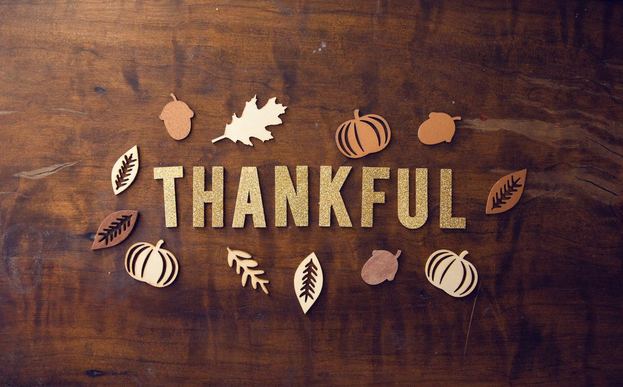Start with being grateful for themAfter being abroad for the past nine Thanksgivings, I’m looking forward to celebrating Thanksgiving in America. Although I really enjoyed sharing our holiday traditions with friends of many other cultures the weekend following Thanksgiving each year, there is something special about being able to celebrate it on the day with extended family (or in my case, my husband’s family). I’m really grateful for this!
The topic of gratitude has seen an explosion of interest in the media and academic communities alike. How many times have you been recommended to keep a gratitude journal or even tried it yourself. So what do we know about gratitude? It’s associated with a litany of great things for us. Feeling and expressing gratitude lowers the risk of poor physical and mental health including health complaints, inflammation, major depression, generalized anxiety disorder, phobia, nicotine dependence, and alcohol and drug dependence. It’s also related to better coping and resiliency, more positive post-traumatic growth, and even better sleep. Some of my former colleagues at the University of Limerick recently published an article that investigated why gratitude leads to improved health. Interestingly enough, the reason gratitude had such a positive effect on our physical health is that it makes people feel less lonely. Gratitude turns our thoughts and emotions outward and we reflect on positive aspects of others – how they have helped us and what they mean to us. It is summed up in the find-remind-and-bind theory of gratitude. Within this framework, the experience of gratitude fosters the development or finding of new relationships or it reminds us to focus on the positive aspects of those with whom we currently share relationships. In either case, it binds people together through reflection on positive aspects and mutual support. It fosters appreciative feelings and thoughts. The act of expressing gratitude is also related to a host of positive outcomes for the receiver of that genuine gratitude. Feeling valued and appreciated touches on our three most basic human needs: competence, autonomy, and relatedness. Gratitude can help us feel appreciated for the work we do (competence) and who we are as individuals (autonomy) and it clearly fosters a sense of social connection (relatedness). Bottom line: Gratitude fosters connection. It’s good for us. It’s good for others. Let’s make a commitment to be grateful well beyond the holiday.
1 Comment
12/22/2017 08:48:31 pm
I am a mom to my child and a wife to my husband. I think that title is a real difficult thing to claim at times. I believe that life would bring us different problems. It may harm our relationship with our loved ones. But one thing I am sure of. A strong relationship came from a strong foundation. It is indeed true that the start of a great relationship is to be grateful with what you have. Everyone deserves to be loved and be happy.
Reply
Leave a Reply. |
|
Copyright © 2023


 RSS Feed
RSS Feed
